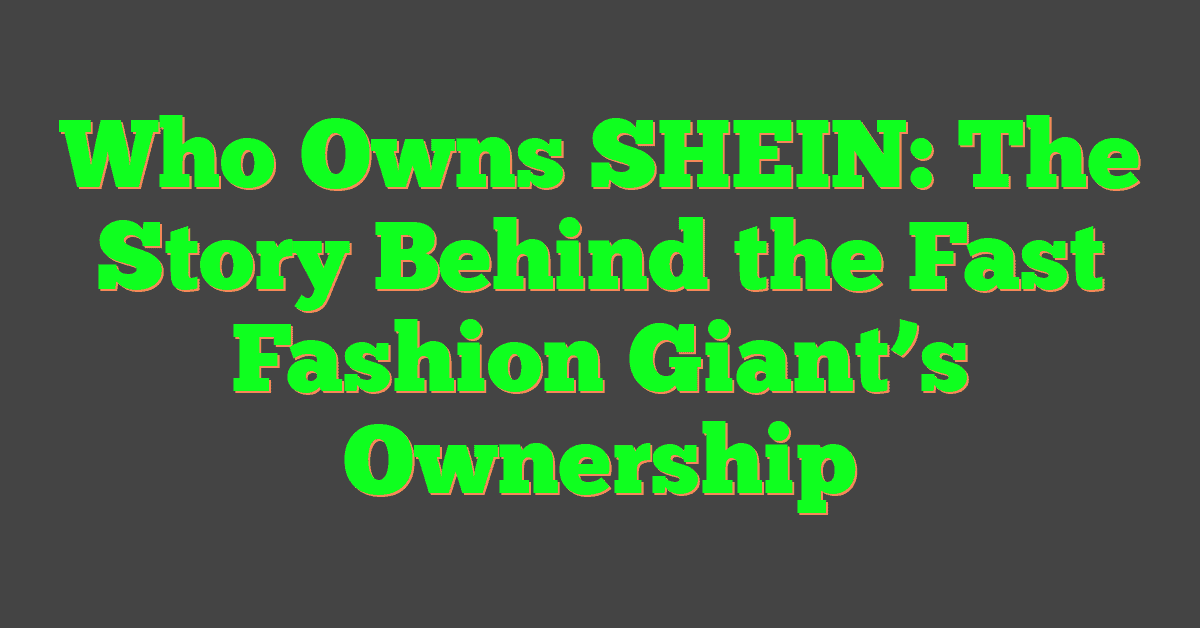Arsenal Football Club, one of the most storied teams in English football, is currently owned by Kroenke Sports & Entertainment (KSE). This ownership group is led by American billionaire Stan Kroenke, who took full control of the club in 2018.
Stan Kroenke is no stranger to sports ownership. The American businessman has built quite a portfolio that includes several professional teams across different sports in the United States. His involvement with Arsenal began in 2007 when he first purchased shares, gradually increasing his stake until he bought out Russian billionaire Alisher Usmanov to gain complete control of the club.
The Arsenal Board includes several Kroenke family members who help oversee the club’s operations. This American ownership represents a significant shift from the club’s traditional English ownership throughout most of its history. While some fans have criticized aspects of Kroenke’s ownership style, others appreciate the financial stability he brings to the club.
Key Takeaways
- Stan Kroenke owns 100% of Arsenal through his company KSE UK INC, making him the sole decision-maker for major club matters.
- Arsenal’s ownership structure changed dramatically in 2018 when Kroenke bought out the remaining shares to gain complete control.
- The Kroenke family maintains an active role in club governance while balancing fan traditions with modern business practices.
Arsenal Ownership Overview
Arsenal Football Club is owned by American billionaire Stan Kroenke through his company Arsenal Holdings plc. The ownership structure has remained stable since 2018 when Kroenke took complete control of the club.
Current Owner – Stan Kroenke
Stan Kroenke is the principal owner of Arsenal F.C. and Arsenal W.F.C. through Arsenal Holdings plc. The American businessman first became involved with the club in 2007 and gradually increased his stake.
In 2018, Kroenke made a significant move by buying out the shares of Russian oligarch Alisher Usmanov. This purchase gave him full control of the football club, making Arsenal a privately owned team.
Kroenke is known for his hands-off approach to management, letting his appointed executives handle day-to-day operations. His ownership has seen mixed reactions from fans, with some criticizing a perceived lack of investment compared to other top Premier League clubs.
Kroenke Sports & Entertainment (KSE)
Kroenke Sports & Entertainment (KSE) has been Arsenal’s full owner since 2018. This American sports holding company manages several major sports franchises across different leagues.
Besides Arsenal, KSE owns the Los Angeles Rams (NFL), Denver Nuggets (NBA), and Colorado Rapids (MLS) among other teams. This multi-sport portfolio makes Arsenal part of a global sports empire valued in the billions.
KSE’s management style emphasizes business stability and long-term planning. The company typically focuses on commercial growth and sustainable operations rather than lavish spending.
Fan interactions with KSE have been complicated, especially following the controversial European Super League proposal in 2021, which damaged trust between ownership and supporters.
The Business Side of Ownership

Arsenal’s ownership structure is closely tied to its business operations and financial strategy. The club balances revenue generation, partnerships, and brand development to maintain competitive standing in global football while delivering returns to shareholders.
Revenue Streams and Financial Health
Arsenal generates income through multiple channels including matchday revenue, broadcasting rights, and commercial activities. On matchday, the Emirates Stadium—with its 60,000+ capacity—brings in significant revenue from ticket sales and hospitality packages.
The club’s financial health has seen ups and downs. Despite not qualifying for the Champions League in recent seasons, Arsenal has maintained strong commercial revenue. This stability is partly thanks to Kroenke Sports & Entertainment’s ownership, which provides backing during leaner periods.
Annual financial reports show Arsenal focusing on sustainable growth rather than heavy spending. This approach sometimes frustrates fans but aims for long-term stability.
The club’s player trading has become more strategic, balancing big signings with developing young talent to maintain financial health while building a competitive squad.
Sponsorships and Partnerships
Arsenal’s commercial partnerships form a crucial part of their business model. The club has secured several major deals, including their long-running partnership with Emirates for both stadium naming rights and shirt sponsorship.
Adidas replaced Puma as the kit manufacturer in 2019, significantly boosting commercial revenue with a deal worth approximately £60 million per year. This partnership reconnected with Arsenal’s heritage while modernizing their brand appeal.
Regional partnerships have become increasingly important, with the club signing deals across Asia, Africa, and North America. These agreements help Arsenal expand their global footprint while generating additional revenue.
The ownership under Stan Kroenke has prioritized diversifying partnership opportunities, including content measurement initiatives that track fan engagement across platforms.
They’ve also invested in audience research to better understand supporter demographics, helping tailor personalized advertising to different market segments.
Brand Value and Growth
Arsenal’s brand remains one of the most valuable in world football, consistently ranking in the top 10 of football club brands globally. Their distinctive red and white colors and cannon emblem are recognized worldwide.
The club has invested heavily in digital transformation to grow their brand. Their robust social media presence spans multiple platforms and languages, helping connect with a diverse global fanbase.
Under KSE ownership, Arsenal has expanded their content creation capabilities, producing exclusive behind-the-scenes material that strengthens fan connections and generates additional revenue through subscription services.
International pre-season tours to markets like the USA, Asia, and Australia have become important brand-building exercises. These tours combine friendly matches with commercial activities and fan events.
The women’s team has seen increased investment, contributing to both sporting success and brand growth by attracting new audiences and sponsors to the Arsenal family.
Technology and Data Use

Arsenal FC has modernized its approach to technology, embracing digital transformation to enhance fan experiences and strengthen business operations. This focus includes careful management of user data and implementing robust security practices.
Leveraging User Data for Business
Arsenal recently formed a partnership with NTT DATA as their Official Digital Transformation Partner. This multi-year collaboration aims to revolutionize how the club connects with fans worldwide.
The club collects various types of information to improve services, including:
- Search data to understand fan interests
- Geolocation data to provide region-specific content
- IP address information for service optimization
- Personal data for account management
Arsenal uses this information to customize fan experiences and create targeted marketing strategies. They require proper consent before collecting sensitive information.
The club’s digital initiatives aren’t limited to fan engagement. Arsenal’s ownership has invested in data analytics to improve player recruitment and performance analysis, giving them competitive advantages on and off the pitch.
Security and Privacy Measures
Arsenal implements strong security measures to protect collected user information. The club uses advanced systems to authenticate users and verify identities when accessing personal accounts.
Their digital platforms feature comprehensive privacy settings that allow fans to control what information is shared. These controls are designed to be user-friendly and transparent.
To prevent spam and unauthorized access, Arsenal employs multi-layered security protocols across all digital platforms. The security team regularly updates these systems to address emerging threats.
The club complies with international data protection regulations, including GDPR. They maintain clear privacy policies explaining how personal information is used, stored, and protected.
Arsenal’s digital security approach balances convenient access for fans with protection of sensitive information. This commitment to data security builds trust with supporters while enabling technological innovation.
Fan Engagement and Club Culture

Arsenal Football Club has built a strong relationship with its fans over the years. This connection shapes both the club’s identity and its decisions, making supporters an essential part of Arsenal’s story.
Developing a Global Brand
Arsenal has grown from a local London club to a global fanbase with supporters’ clubs worldwide. The club’s marketing strategy shifted in 2021 to highlight fan culture and connect with brands that represent its diverse fan network.
Fan influence extends to how the club presents itself. The distinctive red and white colors, the cannon symbol, and the “Gunners” nickname all strengthen the bond between fans and the team.
When Arsenal considered joining the European Super League in 2021, fierce fan protests showed the power of supporter voices. The club quickly withdrew from the controversial plan after seeing the passionate rejection from its fanbase.
Community and Social Responsibility
Arsenal takes its role in the community seriously. The club works with local groups in North London and uses its platform to support social causes that matter to fans.
The Arsenal Fans’ Forum includes representatives from both domestic and international supporters’ clubs. This forum creates direct communication between fans and club leadership, ensuring supporter voices are heard in decision-making processes.
Women’s football has seen growing support, with the Arsenal Women Supporters Club serving as an official link between fans and the club. Their work has helped build record-breaking attendance at women’s matches.
The club’s charity initiatives and youth development programs further strengthen community ties, creating a sense of belonging beyond just match days.
Arsenal’s Digital Presence

Arsenal Football Club has built a robust digital ecosystem to connect with fans worldwide. Their digital strategy combines official platforms with a strong social media presence to engage supporters and enhance the club’s global brand.
Official Website and Mobile Platforms
Arsenal’s official website serves as the central hub for all club information, featuring news, match updates, and ticket sales. The club continually evolves its digital offerings to improve fan experiences.
In recent years, Arsenal has partnered with NTT DATA, a global leader in digital business to launch a digital revolution at the club. This partnership aims to enhance how fans interact with the team online.
The Arsenal app provides personalized content based on fan preferences. Users can customize notifications for match updates, transfer news, and exclusive content.
The club uses cookies and data collection to create tailored experiences for different user segments. Their personalized advertising strategy ensures fans see relevant content while browsing club platforms.
Social Media Strategies
Arsenal maintains a dynamic presence across major social media platforms like Twitter, Instagram, Facebook, and YouTube. Their content strategy blends match highlights, behind-the-scenes footage, and player interviews.
The club has mastered real-time engagement on platforms like Twitter and Instagram. This allows fans to share thoughts and experiences during matches, creating a virtual community of supporters worldwide.
Arsenal uses data analytics to track engagement metrics and refine content strategy. They also regularly experiment with emerging platforms to reach younger audiences.
The Arsenal Media Group (AMG) manages all aspects of the club’s media properties. Their media team produces high-quality content that maintains consistent branding across all channels.
Legal and Ethical Considerations

Arsenal’s ownership structure brings several important legal and ethical considerations. These include how the club manages its valuable intellectual property and maintains compliance with various governing bodies in professional football.
Intellectual Property and Licensing
Arsenal Football Club owns valuable trademarks, logos, and other intellectual property that generate significant revenue. The club carefully manages these assets through licensing agreements with manufacturers for official merchandise.
The trademark “Arsenal” and the club’s cannon emblem are protected worldwide. This protection allows Arsenal Holdings Limited to control how these symbols are used commercially.
Arsenal’s ownership also must follow ethical business standards. The club has policies addressing modern slavery and ethical conduct, showing commitment to responsible business practices.
Fan ownership of intellectual property rights is limited, as the club retains control over its brand. This sometimes creates tension when supporters create unofficial merchandise.
Compliance with Sports Governing Bodies
Arsenal must follow strict regulations from multiple football governing bodies. These include the Premier League, FA, UEFA, and FIFA rules about financial stability and fair play.
The Premier League’s Owners’ and Directors’ Test ensures that those controlling the club meet specific standards of conduct and financial responsibility. The club’s ownership structure must comply with this test.
As the parent company, Arsenal Holdings plc must maintain transparency in its operations. Financial reporting requirements are extensive, forcing ownership to regularly disclose financial information.
The ownership must also ensure compliance with international transfer regulations and youth player development rules. Violations could result in serious penalties, including transfer bans or point deductions.




